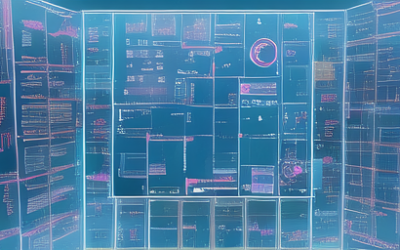React.js is an open-source JavaScript library created by Facebook for building user interfaces. It is used for developing single page web applications, and is the most popular JavaScript library for building user interfaces. React is known for its speed, scalability, and simplicity. React allows developers to create reusable UI components, and makes it easier to reason about application states.
Tech Blog
Tech Insights, Information, and Inspiration.NET Core vs .NET Framework
The main difference between .NET Core and .NET Framework is that .NET Core is open-source and cross-platform, whereas .NET Framework is Windows-only. .NET Core also has a different codebase and architecture than .NET Framework, meaning that applications developed for .NET Core may not run on .NET Framework.
PHP vs Python for Web Development
Both PHP and Python are used in web development, and they each have their own advantages and disadvantages. PHP is often used for simpler, smaller projects, while Python is better suited for more complex, larger projects. Python is more versatile and powerful than PHP, but it is also more difficult to learn. PHP is easy to learn, but it is not as powerful or versatile as Python.
What is Python? and Python Uses
What is Python? It is an ideal language for scripting and rapid application development in many areas on most platforms. It is a great choice for web development and for creating software applications. The language supports multiple paradigms and can be used for procedural, object-oriented, and functional programming.
Top Java Frameworks
Java is a popular programming language that is used for developing a wide variety of software applications. There are numerous Java frameworks available for developers to use to create their applications. These frameworks provide developers with a set of components that can be used to create their applications quickly and easily.
Kotlin vs Java
Kotlin vs Java are both popular programming languages used for developing applications. Both languages have a lot of similarities in terms of syntax, data types, object-oriented programming, and more. However, they also have several key differences.
What is Kotlin? An Introduction
Kotlin is a modern open-source programming language developed by JetBrains, the makers of the popular IntelliJ IDEA Java IDE. It combines object-oriented and functional programming features and is designed to be a pragmatic language with a simple and concise syntax. Kotlin is interoperable with Java, which means that it can be used to develop Android applications.
What is Kubernetes?
Kubernetes is an open-source container orchestration system used to automate the deployment, scaling, and management of containerized applications. It enables users to schedule and manage containerized applications on clusters of hosts. Kubernetes was originally developed by Google and is now maintained by the Cloud Native Computing Foundation.
Understanding Linux and Antitrust
Linux is an open-source operating system that has been around since 1991. It is a powerful and flexible alternative to other operating systems, and it has become increasingly popular over the years. As Linux has grown, some have raised concerns that the market may become too dominated by the open-source operating system, which could lead to higher prices and reduced innovation.
Open Source Software Development
Open source software development is a process of creating and distributing software where the source code is available to the general public for use and modification. This type of development allows for collaboration between developers and users, and can lead to the creation of more innovative and efficient software.
Get In Touch
UseTech Design, LLC
TROY, MI • BLOOMFIELD HILLS, MI
Call or text +1(734) 367-4100










